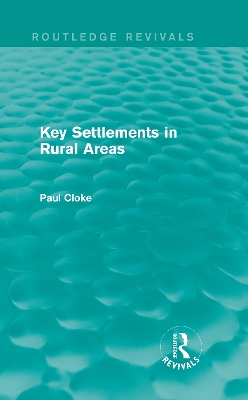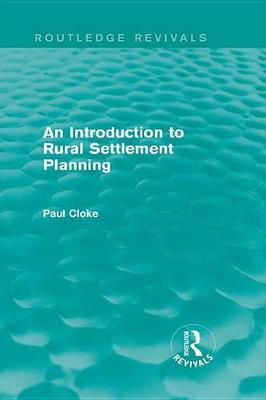Routledge Revivals
2 total works
The problems of providing essential services in a constrained economic climate, and of conserving the rural environment whilst protecting rural people, are of immediate importance. This book, first published in 1979, was the first major piece of published research on the topic of rural settlement planning. It examines in detail the history and theory behind key settlement policies, and their practical application within the British rural planning system. Using Warwickshire and Devon as two very different case studies, Paul Cloke measures the outcome of settlement planning and discusses the wider implications of the ‘concentration-dispersal’ debate. This reissue will provide essential background for students of rural and social geography, and rural sociology and economics.
An Introduction to Rural Settlement Planning (Routledge Revivals)
by Paul Cloke
This book, first published in 1983, provided the first thorough and informative introduction to the theory, practice and politics of rural settlement planning. It surveys the conceptual and ideological leanings of those who have developed, implemented and revised rural settlement practice, and gives detailed analysis of planning documentation to assess the extent to which policies have been successfully implemented. Paul Cloke assesses the shortfalls of rural planning and resource management and suggests methods by which a sustainable rural future might be attained. This reissue provides essential background and a comprehensive handbook for those with an interest in rural settlement planning.

